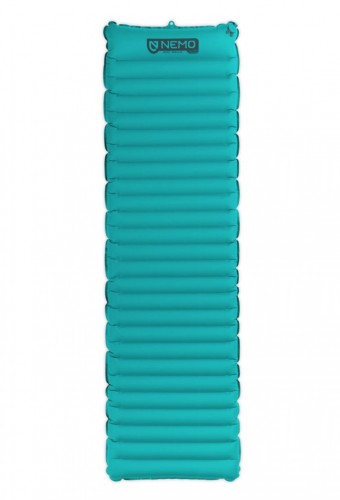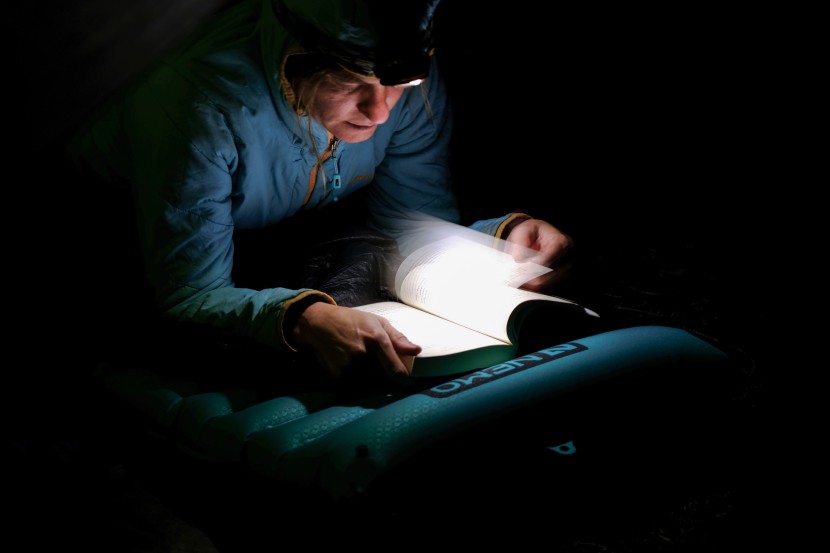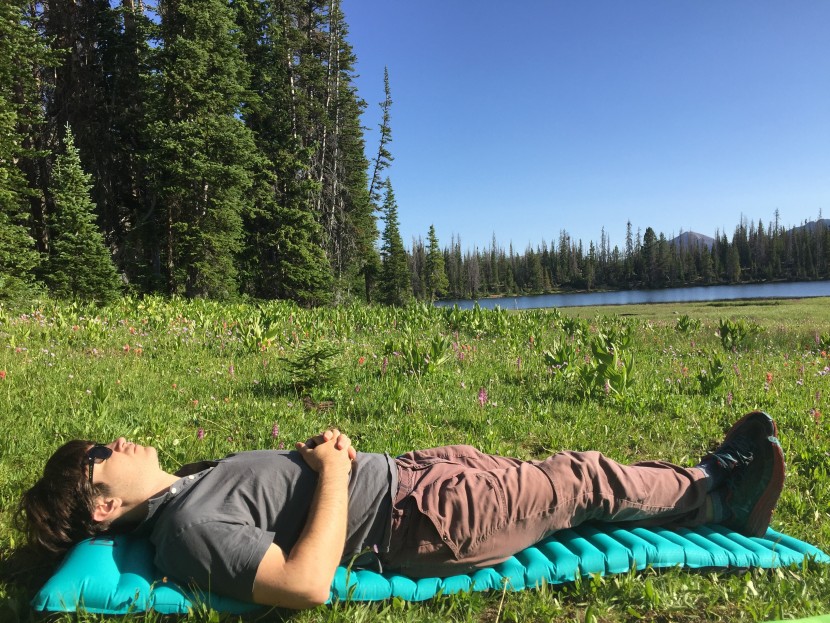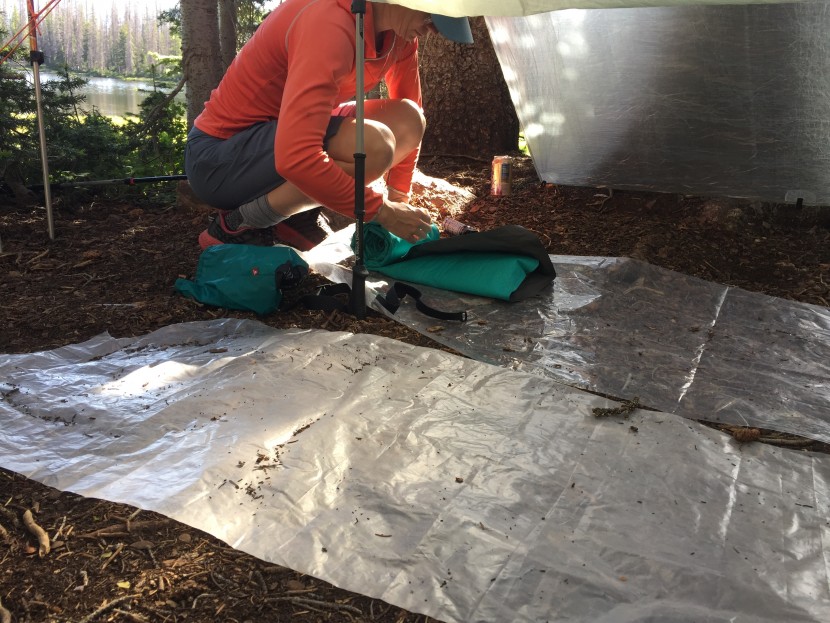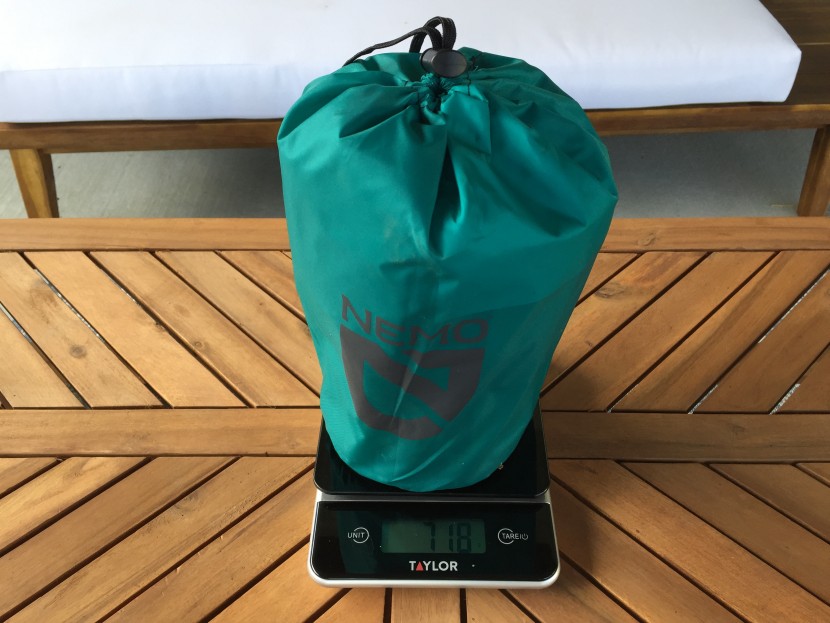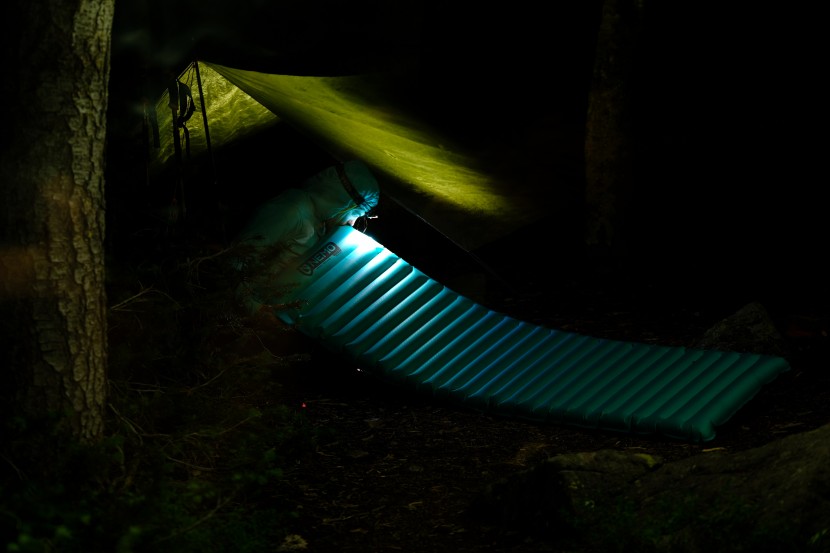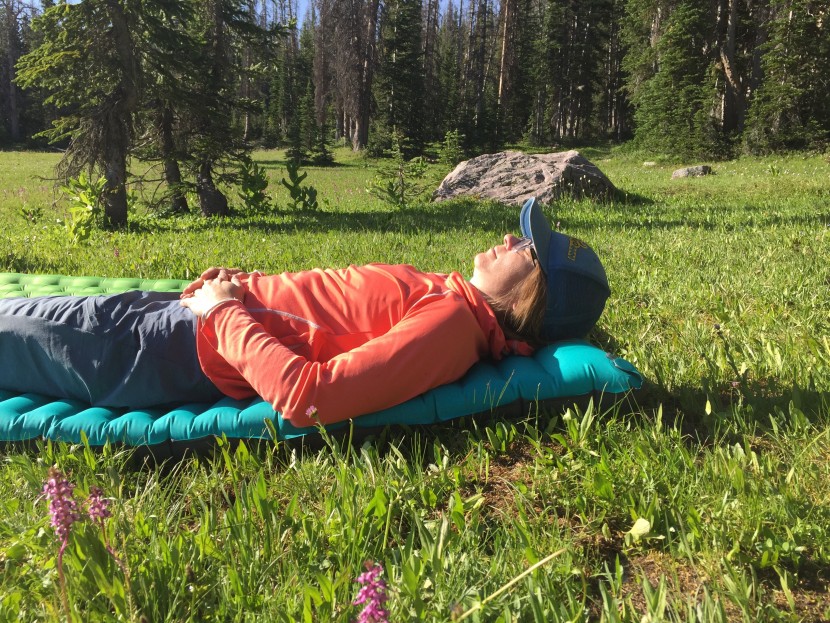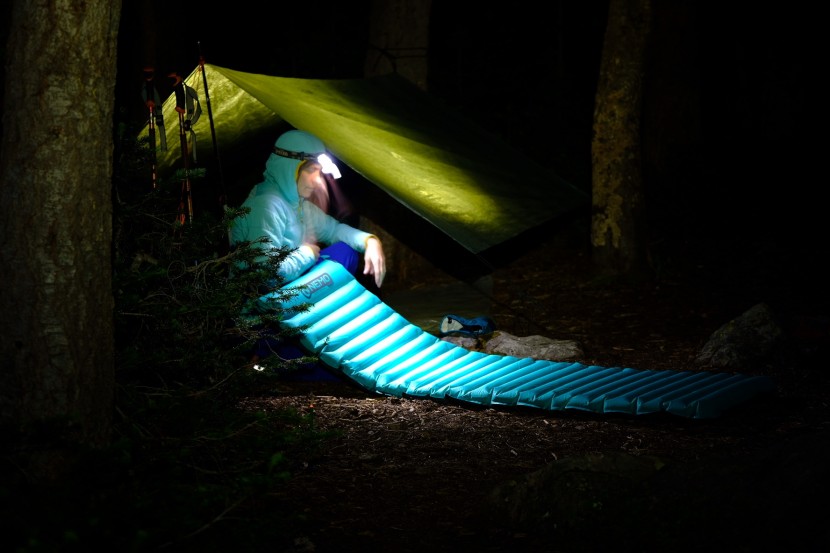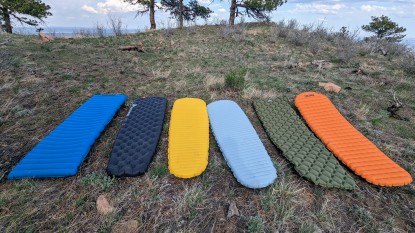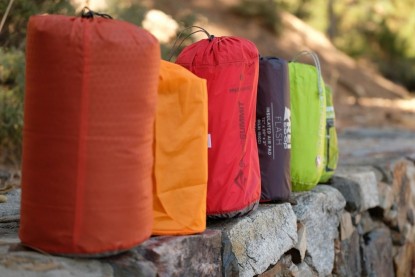Nemo Astro Insulated Review
Our Verdict
Our Analysis and Test Results
If you're tired of body shaming ultralight pads getting all of the press and just want a pad that is at home romping around in the wilderness as well as for impromptu car camping trips, the Astro is a great versatile all-around pad.
Comfort
The real draw of this pad is the extremely thick 3.5-inch loft and easy to use micro adjuster to dial in firmness. Our testers found multiple attributes that ultimately boosted the overall comfort of the Astro. The ample footprint, grippy fabric, integrated pillow, and car camping pad levels of thickness elevated this pad into contention for one of the most comfortable pads that we would be willing to take with us on a backpacking trip.
We found the plush 3.5inch thick loft and ability to micro-adjust firmness quite comfortable. Like most inflatable sleeping pads, however, when underinflated, the Astro is a bit bouncy though not excessively so. When it's dialed in, it took some concentration to really determine where pressure points were as it conformed so well even on bumpy rooty ground. While we were a bit skeptical of the integrated pillow, it helped ameliorate one of the biggest frustrations we have with sleeping pads these days, and that's having our improvised stuff sack pillow slip off the pad mid slumber. Like the kiddie bumpers at the bowling alley, this barrier really did keep our pillow in place.
Weight and Packed Size
All of this plush comfort and shoulder season warmth does come at a price. On our scale, the Astro came in at 25.33 ounces (718 grams), which is definitely on the heavy side of all pads tested this year. The packed size isn't any more impressive. Tightly packed, the Astro is like a taller girthier 32oz Nalgene bottle size.
This may sound discouraging, but some of our testers felt that in the right circumstances, this weight and packed size penalty would be worth it. Think pleasure backpacking trip, lake to lake, where you don't want to sacrifice sleep quality to shave three-quarters of a pound from your kit. Full disclosure, one of our favorite nights out this summer was utilizing the Astro in conjunction with our ultralight kit. We had an excellent night's sleep, and our entire pack still only weighed ten pounds.
Warmth
While some sleeping pads opt for crinkly aluminized foils inside the pad to minimize weight and packed size, the Astro stayed true to its luxury liner roots and went for quiet and warm Primaloft. This has a notable impact on packed size as well as the benefit of having a really quiet pad, which can be a benefit for yourself and anyone you're sleeping next to. The stated R-value is 2.6 which rates this pad right around the freezing point for water. Throughout our testing, this seemed pretty accurate. Cool summer nights in the high country with lows in the upper 30s were quite comfortable, and our early spring excursions into the Wasatch proved to outgun this pad just a bit.
Ease of Inflation
One of the biggest downsides of the Astro is the omission of a pump sack. While these seemed heavy and unnecessary a few years ago, large plush pads such as the Astro require a ton of air to inflate. We found ourselves having to pause and wait out the headrush a few times while inflating this thing, even when we were trying to pace ourselves. Filling this thing by mouth takes us several minutes at least. We were a bit baffled (get it?) by the omission of a pump sack as the Astro really does have comfort and usability as its highest priority. That being said, the valve system is a massive improvement over the past versions that looked a bit like the old-school Therm-a-Rest valves. This new version lays flat and feels durable and rugged in hand. We had no concerns with being rough with it as it doesn't feel fragile in the least. As a side note, Nemo does sell a pump sack compatible with the “Lay Low” valve system on this pad, but it's quite expensive which is a real kick in the pump sack.
Durability
Another bright spot in performance for the Astro was overall durability. the 75d ripstop polyester felt thick and proved to be abrasion and puncture-resistant even with some of our reckless testing. We pitched the Astro directly on the ground and on granite slabs without any punctures or visible damage. Should you manage to bust through it or damage it beyond repair, Nemo does back the product with a lifetime warranty though we have not yet had to utilize this protection.
Value
Not only did this new version of the Astro come equipped with some solid updates to the physical structure, but it also came with a lower price. Comfort and durability are hard to find in a backpacking pad, and at the retail price, this pad does represent a solid value. It's not going to win any awards for being lightweight or ultra-cheap, but it is a solid pad at a reasonable price. One red mark in overall value is the omission of a pump sack, something that seems more and more common to have included with most sleeping pads.
Conclusion
At 3.5 inches thick and having some nice creature comforts included, the Astro fits a niche in the backpacking pad market. While some pads seem to be testing the limits of what humans will tolerate for a sleeping surface, the Astro is headed in the opposite direction and offers excellent comfort for backpackers who listen to their body more than their ego.


